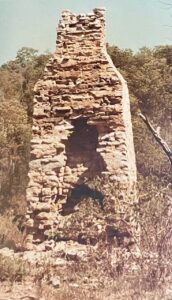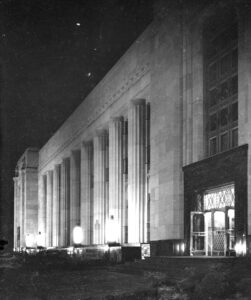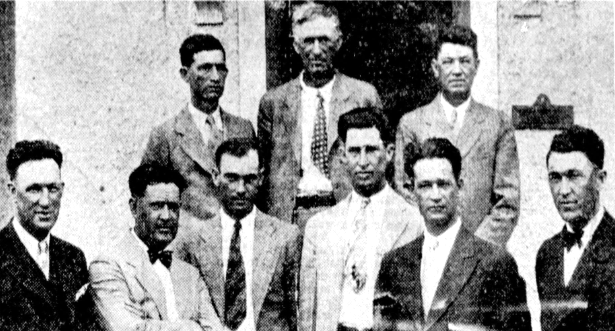Back in 1914, young Lucy Winfrey was looking forward to the best year of her life. She’d be turning “Sweet 16” that year. Though she could easily walk to Knoxville High School from her home on Callaway Street in Mechanicsville, she chose to ride the street car into Fountain City to go to Central High School.
Much of her life revolved around the old Deaderick Avenue Baptist Church, where her father, the Rev. William Winfrey, was a pastor. He also did evening services at South Knoxville Baptist. But in February of that year, things turned sideways when the good reverend went on to glory at the young age of 56.
“I remember that Mann’s Funeral Home had the service. On the night before the funeral, Uncle Hal had Dad’s body brought to his house in Concord to stay overnight,” Lucy wrote in a brief memoir nearly 40 years ago. “This was a long trip back then, especially when the hearse is pulled by horses. This was a wonderful gesture on the part of Uncle Hal. He did it out of love and respect for my father.”
Mamaw, Mrs. Payne
Lucy was known by several other names: Lucille, Cindy, Lucinda, Mother, Mrs. Payne. By the time I came along, most everyone, other than her children, called her Mamaw. She was my great grandmother, and we were blessed to have her for 93 years.

Chimney remnant at the Winfrey homeplace, Winfrey Hollow, Hawkins County (Photo from author’s collection).
More than a decade before she was born, her circuit-riding preacher father followed his stonemason brothers out of Winfrey Hollow in Hawkins County down to Concord. Business there was booming, especially in marble. It’s not that there wasn’t any back home, but access to the Tennessee River and the East Tennessee, Virginia and Georgia railroad line going through town made for better prospects.
Uncle Hal was Hal Glaspy Winfrey Sr. He and the Rev. William were but two of the seven children of Holmes Warren Winfrey and Lucinda Elkins from Rogersville. In 1886 Hal and brothers James Hardin and John D. moved to Concord to open up a shop as stonemasons. William soon followed, not to work rocks, but to save souls. He was the first pastor of Concord Baptist Church (see Mona Smith’s story here), which then operated out of the Masonic lodge that still stands to this day looking over the cemetery where many of my Winfrey relatives are buried.
Because the Winfreys were prolific progenitors, there is not enough space here to list all in this immediate family. William had 10 children between two wives and Hal had 12 with just one. Hal was joined in the family business by all eight of his sons, and the contracts they secured under various company names (primarily Wilson-Winfrey Stone Co. by the early 1930s) sent them far afield for work.
The Winfreys only did exterior work, and some of the finest examples of their craft include the Denver City-County Building and the art deco Gulf Building in Houston. They worked on the Racine, Wisconsin, courthouse, which won a national prize for architecture in 1931.
Building in Knoxville

The downtown post office at night, 1934 (Photo: Thompson Brothers, McClung Digital Collection).
For all the work the family did elsewhere, the first time they were contracted to do any work in Knoxville (after nearly 50 years in Concord) was in the early 1930s for the downtown post office. In a profile for The Knoxville News-Sentinel in 1933, son Hal Jr. said they had not worked much with Tennessee marble because it was too fine for exteriors:
The post office here is about the most beautiful building we have ever worked on. This Tennessee pink marble, furnished by the Candoro Marble Co., is about the most beautiful stone we have ever used.
By the time the work on the post office began, Hal Sr. had already lost one son in the line of duty. Marion Lee was killed after falling 11 stories while working on a project in Atlanta in June 1930. Hal Glaspy Winfrey Sr. died in December 1933, just shy of his 71st birthday, and is buried alongside much of his family in that Masonic Cemetery in Concord. The family business was sold in 1963.
Beth Kinnane writes a history feature for KnoxTNToday.com. It’s published each Tuesday and is one of our best-read features.
Sources: The Knoxville News Sentinel digital archives, personal archives

